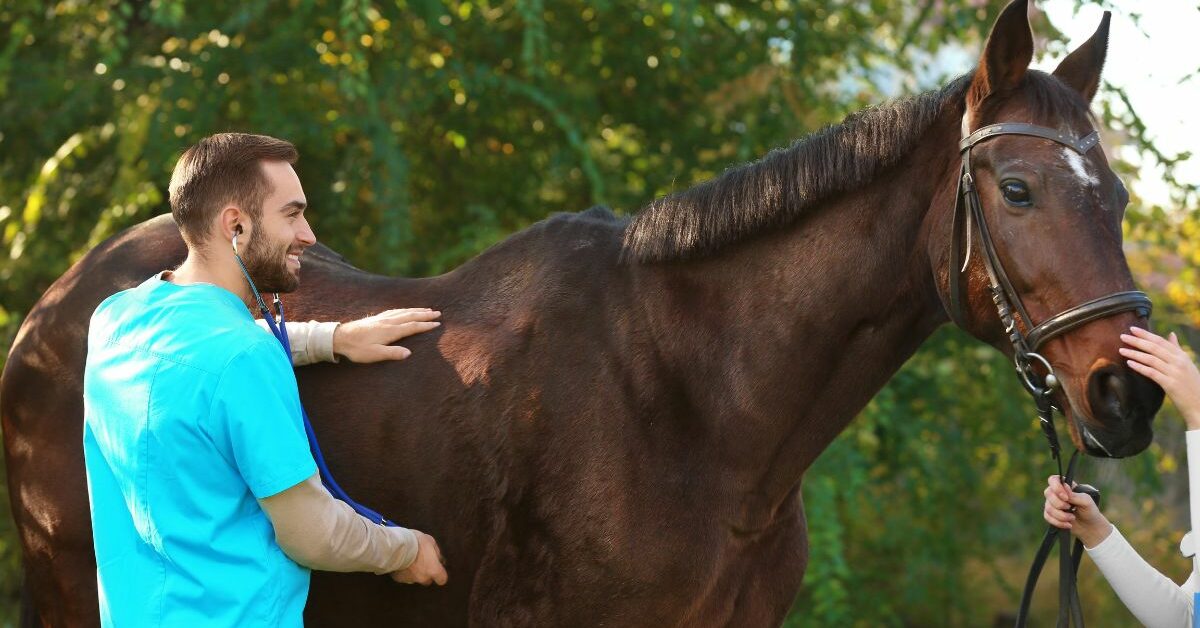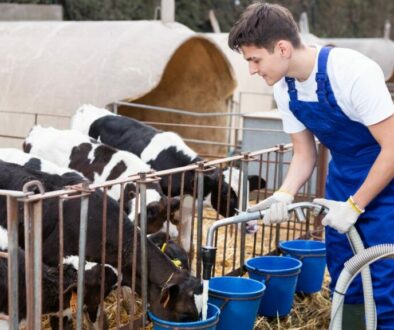How To Become An Equine Vet?
If you are passionate about horses and have a desire to help them lead a healthy life, becoming an equine vet may be the perfect career for you. Equine veterinarians are specialized professionals who provide medical care to horses and other related animals. Being an equine vet requires a combination of rigorous education, extensive training, and a certain kind of personality. Here are the steps to becoming an equine vet, the skills necessary for this occupation, what an equine vet is, and the benefits of working as an equine vet.
Steps to Become an Equine Vet
Becoming an equine veterinarian is a long and challenging journey that requires a lot of dedication and hard work. While the process may seem daunting, it is also incredibly rewarding for those who are passionate about working with horses.
- Earn Bachelor’s Degree
One of the first steps to becoming an equine vet is to obtain a bachelor’s degree from an accredited college or university. While there are no specific undergraduate degree requirements, most pre-vet students major in biology, animal science, or a related field. This is because these majors provide students with a strong foundation in the sciences, which is essential for success in veterinary school.
- Earn Doctor of Veterinary Medicine (DVM) Degree
Once you have completed your undergraduate studies, you will need to attend veterinary college for four years to earn a Doctor of Veterinary Medicine (DVM) degree. During your time in veterinary school, you will take courses in anatomy, physiology, pharmacology, and other subjects that are relevant to veterinary medicine. You will also gain hands-on experience working with animals in a clinical setting.
- Pass National Veterinary Licensing Exam
After completing veterinary college, equine veterinary graduates must pass the national veterinary licensing exam to become licensed veterinarians. This exam is designed to test your knowledge of veterinary medicine and ensure that you are qualified to practice as a veterinarian.
- Complete Both Internship and Residency Requirements
Following that, equine vets must complete an additional one year of internship, followed by a two to three year residency in equine medicine or surgery, which can lead to a further specialty. These residencies are highly competitive and require a rigorous application process. During your residency, you will work closely with experienced equine veterinarians and gain valuable hands-on experience treating horses with a variety of medical conditions.
- Become a Board-Certified Veterinary Specialist
Once you have completed your residency, you will need to sit for an examination to become a board-certified veterinary specialist. This exam is designed to test your knowledge and skills in your chosen specialty area, and it is essential for demonstrating your expertise to potential clients and employers.
Overall, becoming an equine veterinarian is a challenging but rewarding process that requires a lot of hard work and dedication. If you are passionate about working with horses and are willing to put in the effort, it can be an incredibly fulfilling career path that allows you to make a real difference in the lives of animals and their owners.
Skills Needed to Become an Equine Vet
In addition to the technical skills required for the job, equine vets must also possess a strong work ethic and a dedication to their profession. This means being willing to work long hours, often in challenging and unpredictable conditions. Equine vets must also be detail-oriented and able to keep meticulous records of their patients’ medical histories and treatments.
Another important aspect of being an equine vet is the ability to work collaboratively with other professionals in the equine industry, such as trainers, farriers, and nutritionists. This requires strong teamwork and communication skills, as well as a willingness to learn from others and share knowledge and expertise.
Equine vets must also stay up-to-date with the latest advancements in equine medicine and technology. This means attending continuing education courses and conferences, reading scientific journals and publications, and staying informed about new treatments and procedures.
Finally, equine vets must have a deep love and appreciation for horses and the equine industry. This passion for their work helps to drive their dedication and commitment to providing the best possible care for their patients.I
Becoming an equine vet requires a unique combination of technical skills, interpersonal skills, dedication, and passion for the equine industry. It is a challenging and rewarding profession that requires a lifelong commitment to learning and growth.
What is An Equine Vet?
An equine vet is a licensed veterinarian who specializes in horses. They are professionals who provide necessary medical care to ensure the health and wellbeing of horses. Equine vets must undergo extensive education and training to become qualified for this profession. They are responsible for performing complex medical treatments and surgeries, providing routine care, and diagnosing and treating various equine ailments.
Equine vets play a crucial role in the equine industry. Their work is essential in maintaining the health and performance of horses. They work closely with horse owners to ensure that their horses receive the best possible care. This includes preventative care such as vaccinations and regular check-ups, as well as emergency care for injuries or illnesses.
Equine vets may specialize in specific areas of equine health such as dentistry, reproduction, or sports medicine. They may also work with other professionals such as horse trainers and stable managers to ensure a horse’s health and rehabilitation after a surgery or injury. They may also provide advice on nutrition and exercise programs to help horses maintain optimal health and performance.
Equine vets may work in a variety of settings. Some work in private practices, while others work in universities or veterinary hospitals. Some equine vets may also work for government agencies or non-profit organizations that focus on animal welfare. Regardless of their setting, equine vets must stay up-to-date with the latest advances in equine medicine and technology to provide the best possible care for their patients.
Equine vets are highly trained professionals who play a critical role in the health and wellbeing of horses. They provide essential medical care and work closely with horse owners and other professionals to ensure that horses receive the best possible care. Their expertise and dedication are essential in maintaining the health and performance of horses in the equine industry.
The Benefits of Working as An Equine Vet
Working as an equine vet is a highly rewarding profession. Not only do equine vets get to work with beautiful animals every day, but they also have the opportunity to provide life-saving medical care and improve the quality of life for both horses and their owners.
Equine vets play a critical role in ensuring the health and welfare of horses. They are responsible for diagnosing and treating a wide range of medical conditions, from minor injuries to life-threatening illnesses. This requires a deep understanding of equine anatomy, physiology, and behavior, as well as a broad range of medical skills and knowledge.
Equine vets also work closely with horse owners and trainers to develop individualized treatment plans that meet the unique needs of each horse. This requires strong communication and interpersonal skills, as well as the ability to work collaboratively with other members of the veterinary team.
Additionally, equine vets earn a good salary, with an average salary of approximately $93,000 per year. This may vary depending on the location, type of practice, and level of experience. However, many equine vets find that the rewards of the job go far beyond financial compensation.
Moreover, it is worth mentioning that the demand for equine vets is steadily increasing. This is due to the growing number of horse owners and trainers who place a high value on their horse’s health and well-being. As the horse industry continues to grow, so too will the need for skilled and dedicated equine vets.
Equine vets also have the opportunity to specialize in a particular area of equine medicine, such as sports medicine, reproduction, or surgery. This allows them to develop a deep expertise in their chosen field and provide even more specialized care to their equine patients.
Finally, working as an equine vet offers a unique and fulfilling lifestyle. Many equine vets work in rural areas, where they have the opportunity to be surrounded by nature and work in a peaceful, tranquil environment. This can be a welcome change from the hustle and bustle of city life, and can provide a sense of fulfillment and purpose that is hard to find in other professions.
Working as an equine vet offers a wide range of benefits, from the opportunity to work with beautiful animals and provide life-saving medical care, to a good salary and excellent job prospects. Equine vets play a critical role in ensuring the health and welfare of horses, and their work is both challenging and deeply rewarding.
Being an equine veterinarian is a challenging but rewarding career. It requires years of education and training, as well as specific skills and personal qualities. However, if you have a passion for horses and enjoy helping improve their quality of life, becoming an equine vet may be an excellent career path for you. With the right education and experience, you could be on your way to helping horses lead happier and healthier lives.




